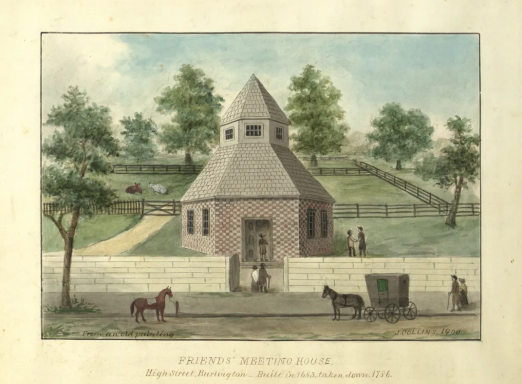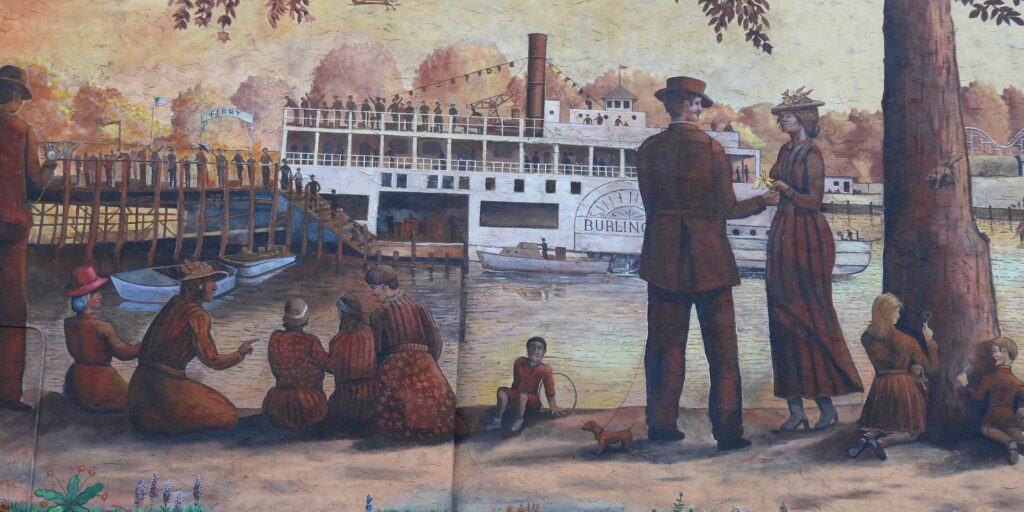The City of Burlington New Jersey USA is the first and original township in Burlington County, predating the “original constablrys” by 11 years.
Native Americans of the Mantas (or Leaping Frog) tribe of the Lenni Lenape knew Burlington Island as Matinicunk and the mainland as Techichohocki, or "oldest planted land."

Early 1600s - There is some archaeological evidence supporting the local presence of a significant Swedish settlement by the early 1600s. Belgian Walloons fleeing persecution built the first recorded European settlement in New Jersey, ca. 1624, establishing an Island trading post to barter with the indigenous people. The Dutch then came upon the Island, exploiting its rich and varied wildlife. Their fort faced downriver, the better to defend both forks of the Delaware River from invasion. New Jersey’s first record of an African presence notes slaves of a Dutch colonial official. The first murder in recorded state history took place on the Island in the 1670s, when two Indians murdered two Dutchmen. As the Dutch withdrew from New World holdings, Swedes and Finns occupied the Island, until it was seized by the English in 1664. Fleeing oppression in England, the Quakers settled in Burlington over 325 years ago.

March 3, 1677 - Proprietors authorized the formation of the town in a seminal constitutional document which set forth principles and ideals of freedom and democracy found 100 years later in the United States Constitution. Among these innovations were civil and religious liberty; separate executive and legislative power; an elected Assembly; freedom of speech; no deprivation without due process of law. In their own stirring words, the Proprietors “...lay a foundation for after ages to understand their liberty as men and Christians, that they may not be brought into bondage but by their own consent, for we put the power in the people.”
NIXLE.com for up to date emergency alerts.
Flood Insurance
Stormwater Management Information